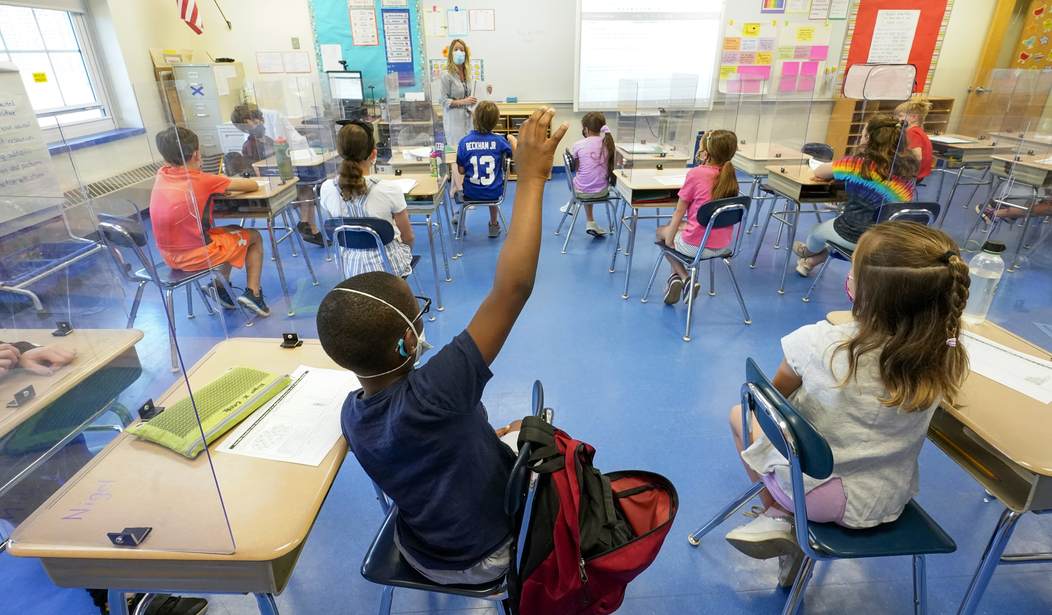Oregon Governor Kate Brown signed a bill that essentially eliminates all performance standards in math and English for high school students. Senate Bill 744, quietly signed into law on July 14, is just being reported. According to The Oregonian, the new law remained out of the legislative database until July 29. The governor’s office did not announce the signing or hold a ceremony:
For the next five years, an Oregon high school diploma will be no guarantee that the student who earned it can read, write or do math at a high school level.
Gov. Kate Brown had demurred earlier this summer regarding whether she supported the plan passed by the Legislature to drop the requirement that students demonstrate they have achieved those essential skills. But on July 14, the governor signed Senate Bill 744 into law.
The eliminated requirements did not even mandate 12th-grade mastery; students were only required to demonstrate freshman- to sophomore-level skills in reading and math to get a diploma. In fact, Oregon did not require students to pass standardized tests under the old standard, and no new requirements will be effective until 2027.
[Brown’s deputy communications director, Charles] Boyle said in an emailed statement that suspending the reading, writing and math proficiency requirements while the state develops new graduation standards will benefit “Oregon’s Black, Latino, Latina, Latinx, Indigenous, Asian, Pacific Islander, Tribal, and students of color.”
“Leaders from those communities have advocated time and again for equitable graduation standards, along with expanded learning opportunities and supports,”
According to The Oregonian, the legislature did not expand support programs or new learning opportunities. In fact, workshops to assist students in meeting the previous graduation requirement have been largely suspended due to the pandemic.
Recommended: Parents Are Revolting, Teachers Are Resigning, and Critical Race Theory Is to Blame
Alleigh Marré, president of the Freedom to Learn Coalition, asserts that legislation like Oregon’s and other proposals that lower academic standards hurt students in the long term:
“This is not acceptable. Our children go to school to be challenged in academics and prepared for the future. If students aren’t meeting standards, it’s up to our leadership to find a way to reach them, not simply lower the bar,” she told PJ Media. This reflects a concern we hear from countless parents over and over again. After a year of virtual learning and a newfound obsession with political curriculum, Oregon’s education system is careening down a path that is not equipping the next generation for success. We must continue to work to fix this before it’s too late.”
Marré expressed concern that laws and policies like this will only continue to erode student performance in public schools in the United States compared to their global peers. According to the last OCED ranking in 2018, the U.S. ranks 22 in reading, math, and science proficiency. China is number one, with several former Soviet republics now outpacing our country. Free to Learn encourages parents and policymakers at every level to consider what this will mean for global competitiveness in the long term and how to reverse this trend.
Related: ‘Free to Learn’ Coalition Exposes the Politicization of K-12 Schools in Brutal Ad Campaign
On an individual student level, Marré believes policies that reduce expectations are harmful: “The accountability to learn how to study, how to prepare, how to give a presentation, and even just to show up as required are skills children need to be successful in the workforce later in life,” she said. “Education should prepare students for career success. You don’t get paid if you don’t show up.”
Clark County School District in Nevada has eliminated any grade below 50%, and final grades may not include homework, participation, attendance, and behavioral assessments. Earlier this year, a story from Baltimore City Schools showed a student who failed all but three high school courses was near the top half of his class with a GPA of 0.13 as a senior. He was also late or absent 272 days over the first three years.
Removing measures of accountability like these may have broader impacts on society than just economic competitiveness, according to the Marré. To build functional families, communities, and productive businesses, people need to be accountable to other people.
The trend to lower expectations in admissions, performance, and behavior is happening at the federal, state, and local levels. The Biden administration is considering a return to restorative justice policies in education that limit educators’ disciplinary actions to address racial disparities. Oregon will have five years of no-proficiency standards for high school graduates. Local districts are lowering the bar in the name of equity and allowing children to slip through the cracks.
In addition to being worried about politically charged and sexually explicit curricula, parents also need to worry about administrators setting a lower bar for all children. Keeping an eye on grading standards within individual classrooms at the school and district level and new legislation needs to become part of the monitoring process for parent groups interested in maintaining or improving the quality of their schools.










Join the conversation as a VIP Member